Did you know that 70% of future jobs will require skills in STEM? What about the fact that most child care workers leave their positions after one year due to a lack of recognition and support? Did you know that early childhood education is the fastest-growing occupation in the U.S.? If you’re interested in working with young children, now is a great time to consider an early childhood education career. And if you are passionate about working with young children, becoming an early childhood educator could be the perfect fit. An early childhood educator helps prepare children for kindergarten to succeed when they begin school. This job requires patience, understanding, excellent communication skills, and problem-solving abilities. And since there are minimal opportunities for advancement once you become an assistant teacher or teacher, having another career option in mind is recommended.
Early Childhood Educator Resume Example

Download This Early Childhood Educator Resume as PDF
Teacher Aide Resume Example
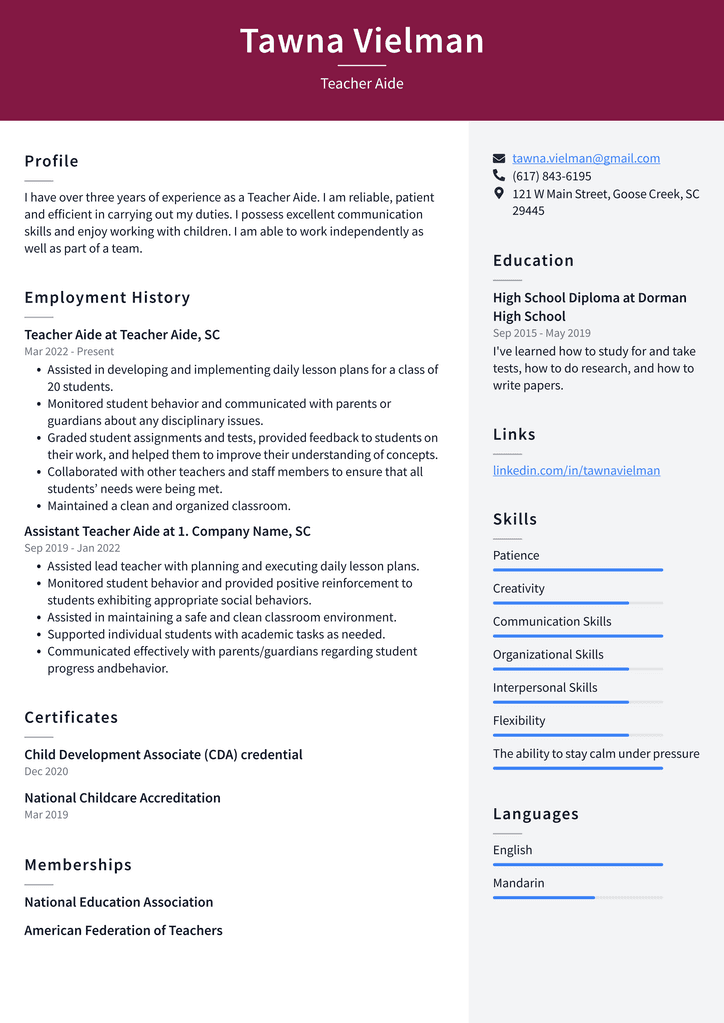
Download This Teacher Aide Resume as PDF
Child Care Director Resume Example
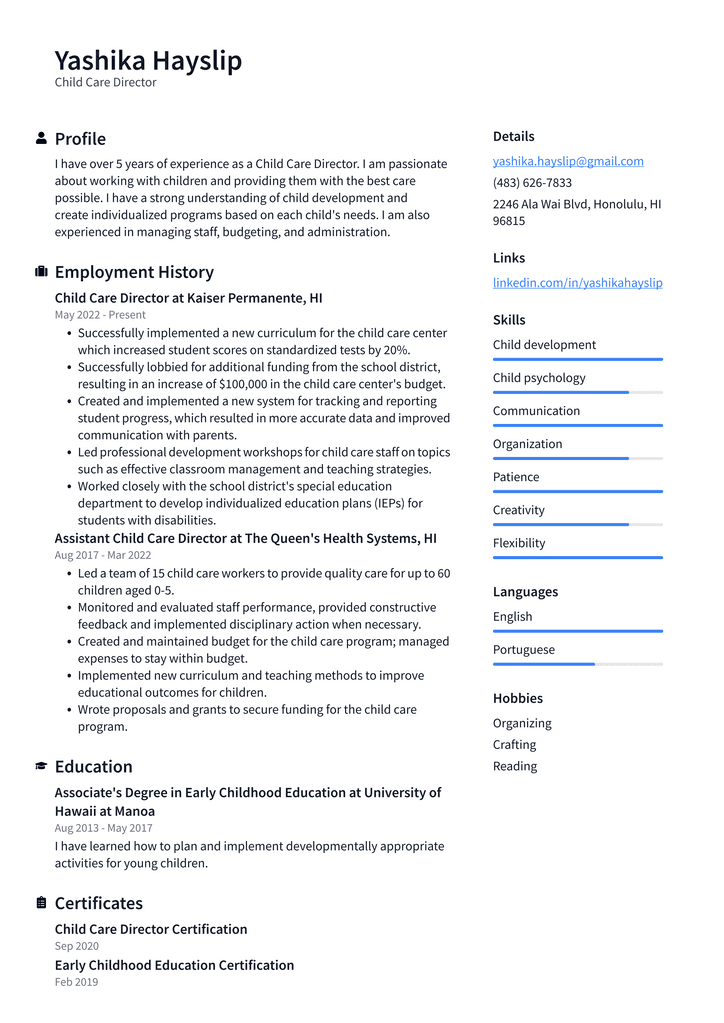
Download This Child Care Director Resume as PDF
Preschool Teacher Resume Example
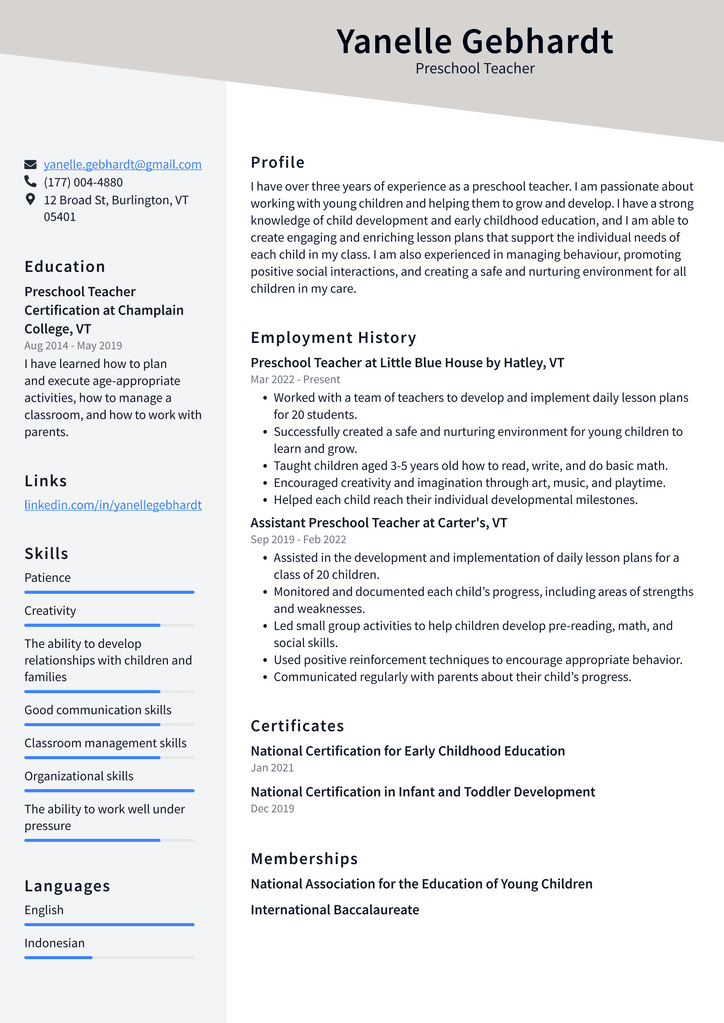
Download This Preschool Teacher Resume as PDF
Assistant Teacher Resume Example
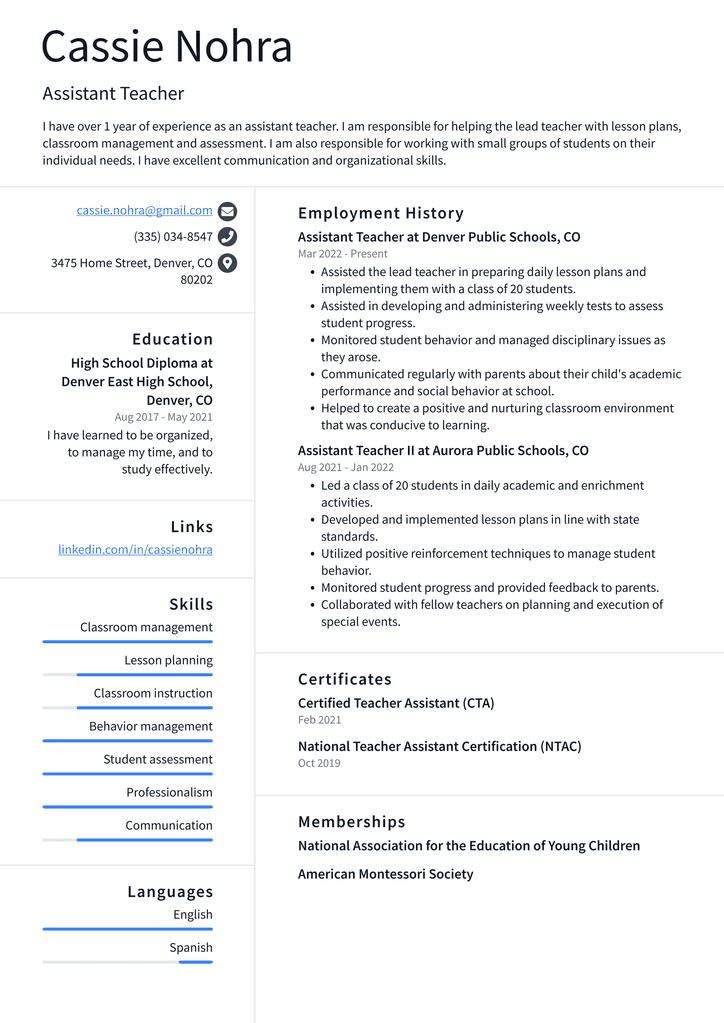
Download This Assistant Teacher Resume as PDF
Infant/Toddler Teacher Resume Example
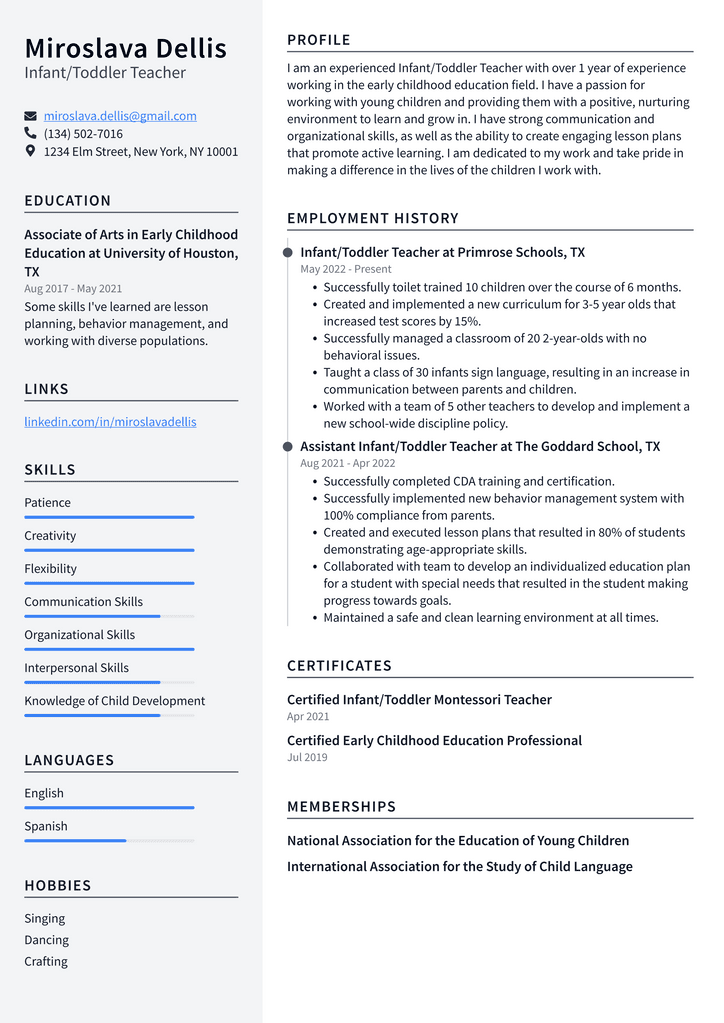
Download This Infant/Toddler Teacher Resume as PDF
Special Education Teacher Resume Example
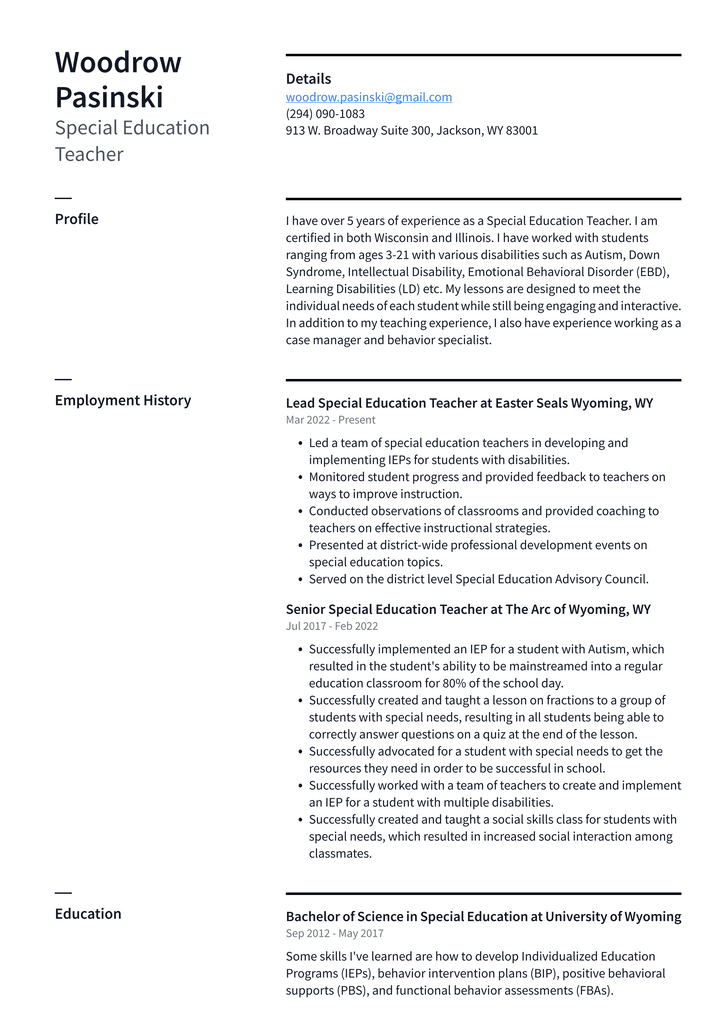
Download This Special Education Teacher Resume as PDF
What is an Early Childhood Educator?
An early childhood educator works with children from birth to eight to help them learn and grow. They work with young children in a classroom setting in various environments, including child care centers, community organizations, and education programs in hospitals. Early childhood educators use creative and developmentally appropriate activities to engage children in various subjects, including language, science, math, and social studies. An early childhood educator helps prepare children for kindergarten to succeed when they begin school. This job requires patience, understanding, excellent communication skills, and problem-solving abilities. Early childhood educators will typically work with a group of children at once, leading them in daily activities and discussions and reading aloud to them. In addition to interacting with young children, educators may keep records of these children’s progress and administer periodic tests.
Get the Scoop on Jobs for Early Childhood Educators
Early childhood educators work primarily in daycare and preschool classrooms. However, some find work in hospitals, community organizations, and even in their own homes if they are private childcare providers. The Bureau of Labor Statistics projects excellent employment opportunities for early childhood educators through 2026. There are several specialties in early childhood education, and you can find job opportunities in most of them. Child care specialists and teachers typically have jobs in child care facilities. Pre-k teachers usually work in public or private schools. Child development specialists can work in special education, preschools, or hospitals. Young children’s librarians often specialize in early childhood services at public libraries.
Requirements for Becoming an Early Childhood Educator
There are no federal requirements for becoming an early childhood educator. However, most states require educators to earn a bachelor’s degree in early childhood education or a related field. In addition, state licensure is required to work as a certified teacher. This requires completing a teaching practicum and passing a standardized test. Early childhood educators must have patience, compassion, a genuine interest in young children, and the ability to work in a team setting. Most states require educators to be at least 18 years old and have a high school diploma or GED equivalent. Some employers may require a bachelor’s degree.
How to Become an Early Childhood Educator
Since there are no federal requirements for becoming an early childhood educator, each state has different regulations and requirements. Here’s what you need to know: Research your state’s licensing requirements and education standards for early childhood education. Second, take relevant classes in a degree program at a nearby college or university. For example, an associate’s degree in early childhood education or a bachelor’s degree in early childhood education. Third, apply for an internship or practicum at local daycare or preschool. This will help you get hands-on experience and network with professionals in the field. You may be able to enroll in a particular practicum program that allows you to earn college credit. Finally, apply for entry-level positions as an assistant teacher or teacher at nearby child care or preschool.
Conclusion
Early childhood education is growing because kids under age eight are transitioning into the formal school system, which means that early childhood educators are needed to help them adjust and prepare for kindergarten. This job requires patience, understanding, excellent communication skills, and problem-solving abilities. Aspiring early childhood educators can learn more about the field by visiting local child care centers and preschools. They can also visit their state’s department of education website for information about the education requirements and job outlook for early childhood educators. And if you decide that becoming an early childhood educator is the right fit for you, you can start planning your path to becoming one today.